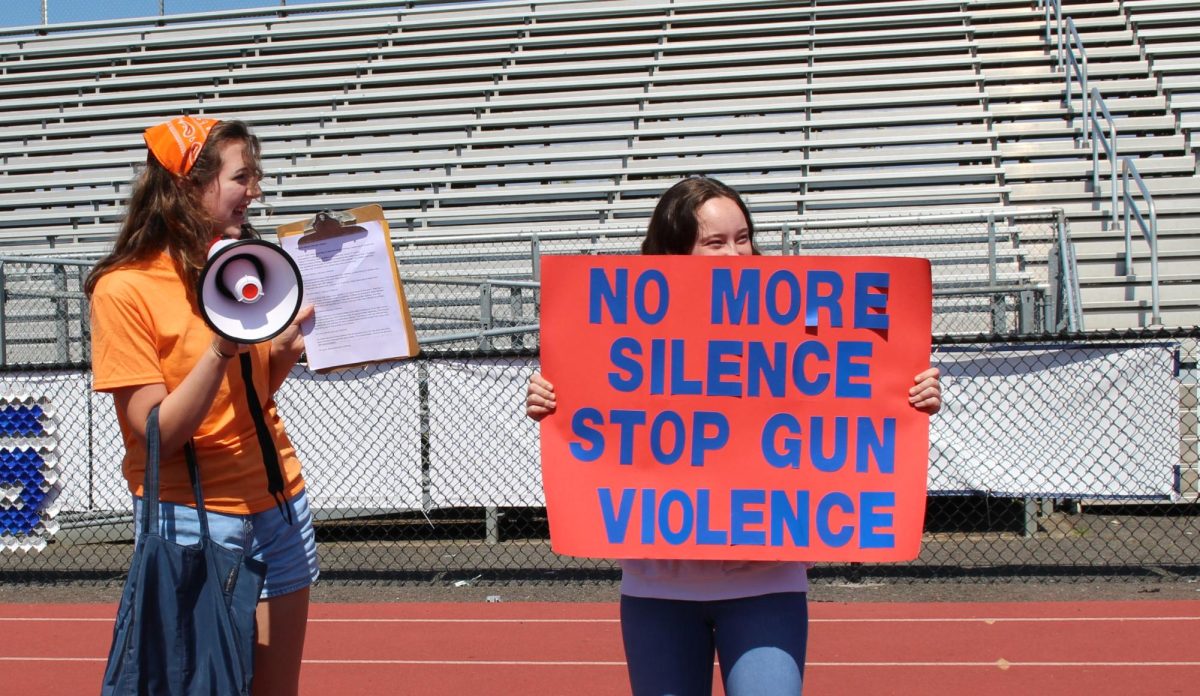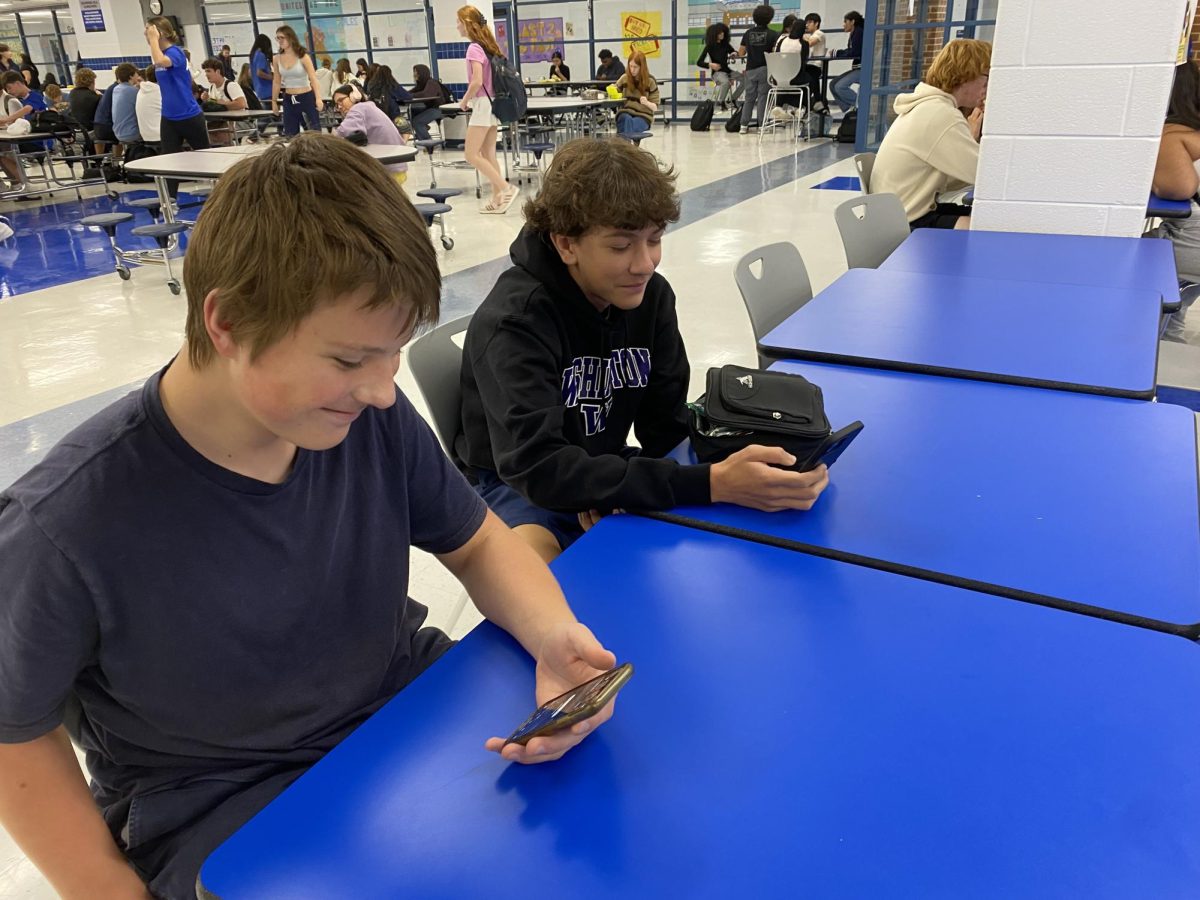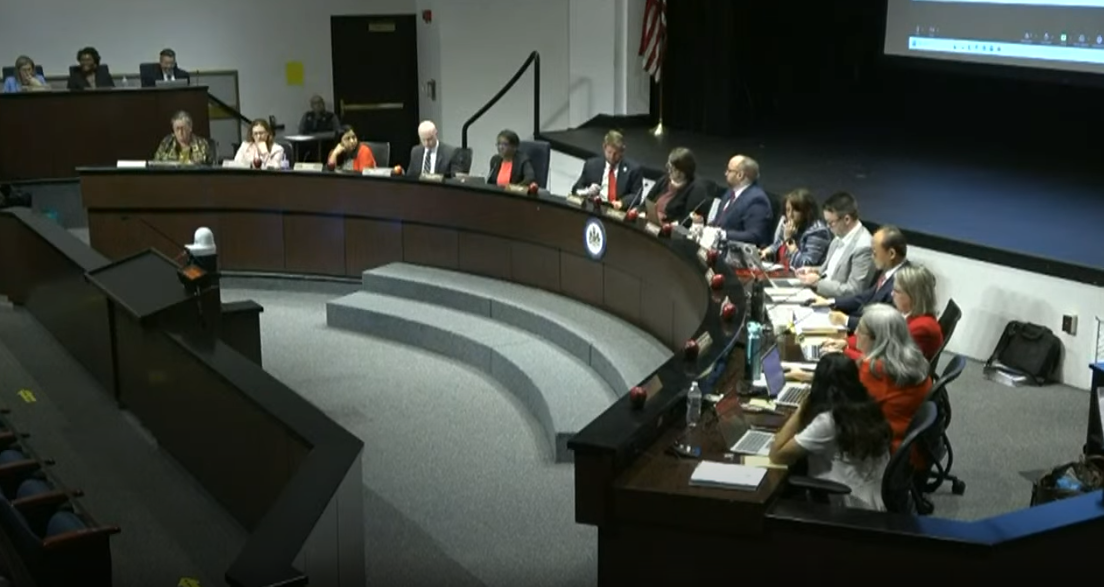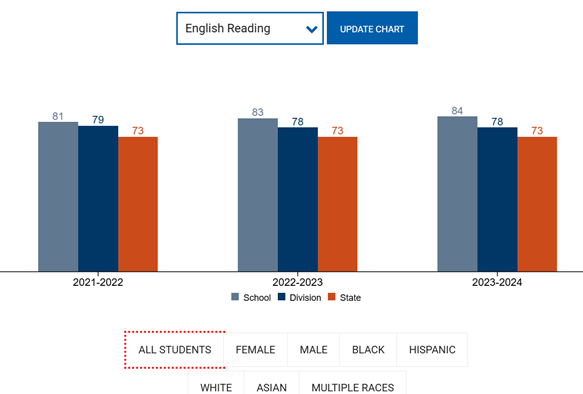Students, previously seen checking their phones during passing periods, now rarely use their phones in the sight line of teachers and staff. Instead, only the cafeteria is filled with students distracted by small screens.
Implementation of the new cellphone policy at West Po began on the first day of school. The policy requires confiscation of student devices at first violation. Subsequent violations face heftier consequences, such as detention, parent-administration conferences, and confiscation of devices at the start of the school day for 20 days. Over the course of the first week, 251 phones were confiscated, according to data released by Principal Statz in the WPHS News You Choose newsletter that week. As of Sept. 24, 995 violations were reported, 202 students have obtained multiple violations and 141 total staff members have reported violations.
The process of reporting cellphone violations was established before the school year began. Teachers were briefed on the procedure and the ensuing consequences for students in violation.
“There’s not much to it. I see the students on the phone, I tell them ‘I’m putting you into the form,’ and put their name in the sheet. I’ve done it three or four times,” Ms. Chill, history teacher, said.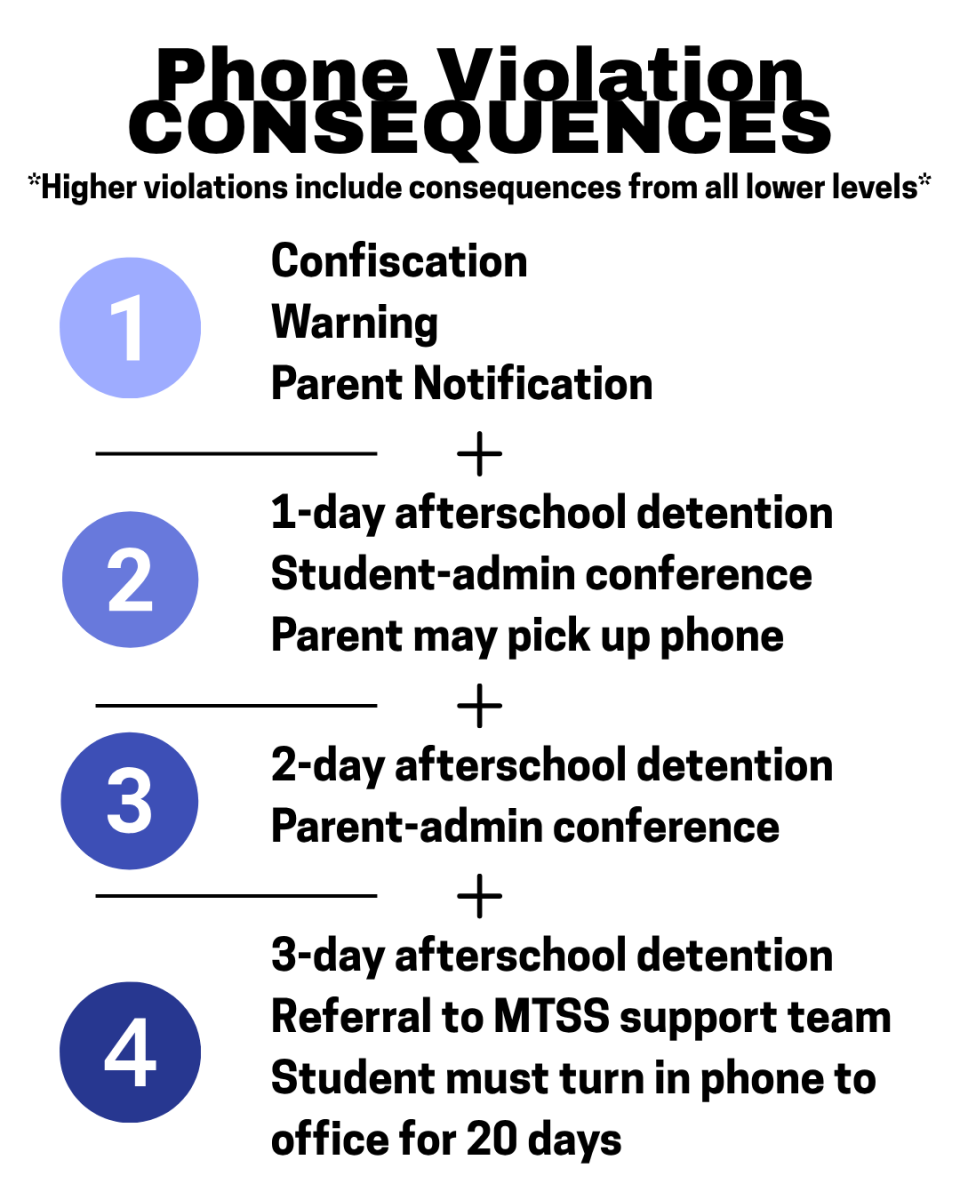
Once students have been reported, administrators follow-up. They come to collect student phones as a consequence for violating the policy. Junior Dakota Edwards had her phone confiscated at the beginning of a fourth period class after being reported during the class period prior.
“I had it out during first period, like right after the bell rang, and my teacher yelled at me. She told me that she was gonna write me up, and then she did,” Edwards described.
Edwards acknowledged that she saw the reasoning behind the confiscation, and felt that it was justified as she “didn’t listen” to her teacher’s warnings. She also pointed out that the policy has a heavier authority with the regulatory power of SB 738.
“It’s a law, so we kind of have to follow it,” Edwards said.
According to Ms. Corbin, assistant principal of Safety & Security, the new procedure has been effective.
“We have a team of people who work to confiscate phones. It’s across administrators and security. So far, we haven’t had a lot of issues,” Ms. Corbin said.
The new policy has accompanied new disciplinary action for FCPS staff to follow.
“We use the progressive route of discipline as outlined in the Students Rights & Responsibilities. We don’t deviate from that,” Ms. Corbin said.
Some students have attempted to avoid phone confiscation. Administrators respond differently in those instances.
“…it’s no longer about the cell phones. We work through a different situation to support the student to understand and educate them when they wonder why we’re doing that [confiscation], as well as making sure that it doesn’t happen again,” Ms. Corbin explained.
The passage of state law SB 738, which requires a full bell-to-bell ban, prompted school board member Ricardy Anderson to support a total ban, joined by her colleagues Mateo Dunne and Melanie Meren. What was ultimately passed by the school board on May 8 offered a lunch exception to high school students, but implemented a total ban on all other grade levels. Anderson, Dunne, and Meren spoke against this exception, arguing that it violates state law.
“I don’t think there is any room for discretion for FCPS in this situation,” Dunne said regarding the impact of state law on FCPS policy.
Superintendent Dr. Reid argued during the May 8 meeting that the state law’s use of the word “restrict” and “age-appropriate” gives FCPS the space to offer an exception to high school students outside of class time, however State Senator Scott Surovell disagrees.
“I don’t think the age-appropriate language modifies the entire bill in a way that gives them discretion to do whatever they want as long as they feel it’s age appropriate,” Surovell said. “I think there’s certain minimums in the bill.”
With the policy not in full compliance to state law, Dunne believes FCPS could be taking unnecessary risks. He described, “…[the cellphone policy] puts the school division at risk for liability if an action was brought by the state… and having to manage those risks is a distraction from all the other challenges that we’re facing right now.”
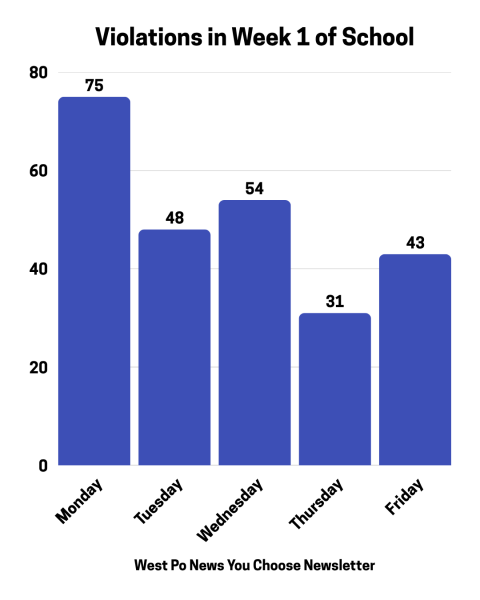 Since implementation, students still have concerns about the restrictions of the cellphone policy, and how it could affect them in serious situations.
Since implementation, students still have concerns about the restrictions of the cellphone policy, and how it could affect them in serious situations.
“Especially with the rising gun violence problems in America, [I feel like] this is just restricting people’s access to safety,” sophomore Beeh Work-Dembowski said.
Cellphones are often used for communication, connecting students to their parents outside of the school building.
“What if an emergency happens and a student doesn’t know how they’re getting home that day?” Work-Dembowski questioned. “So many variables could go into the situation.”
Regardless of student opinion, the policy still stands. Students cannot use their cellphones outside of the cafeteria at lunch. Cellphone restriction was a point of interest for the school board even prior to SB 738, because of the potential harms personal devices present.
“What I have seen… is that these cellphones and personal electronic devices create an undue distraction from the learning environment and cause students to not be learning the content, but [instead] be able to continue to engage in addictive behaviors fostered by the apps and devices,” Dunne said.




